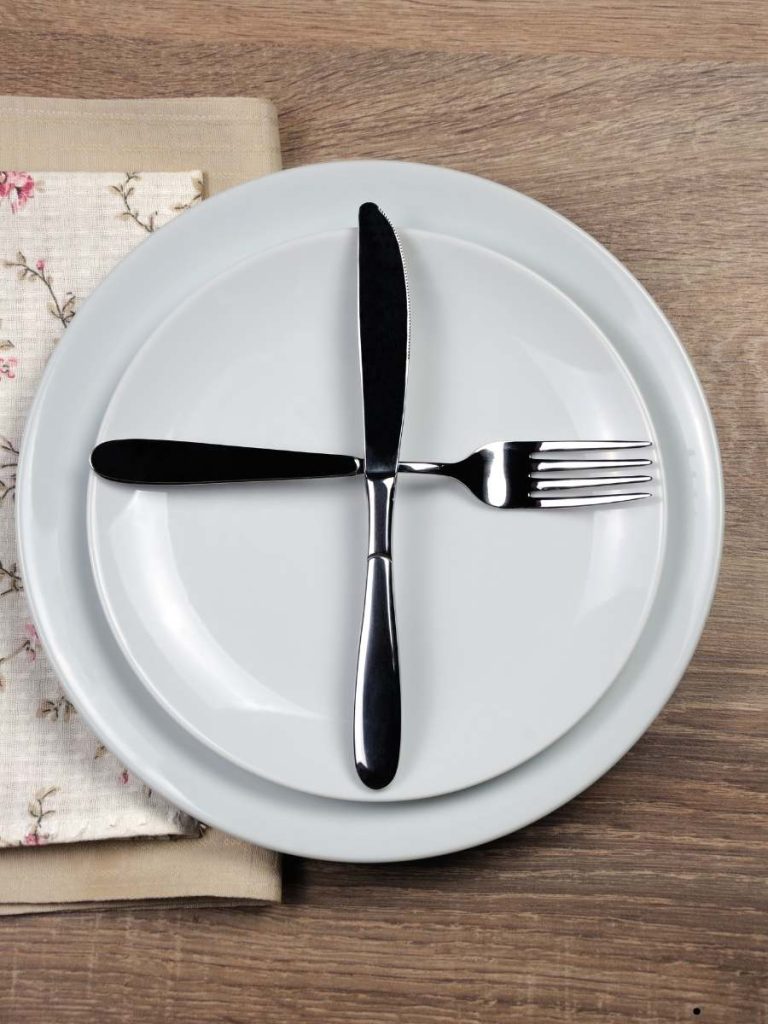Ah, France—the land of romance, exquisite cuisine, and timeless elegance. Whether you’re dreaming of strolling along the Seine, indulging in a buttery croissant, or marveling at the opulent grandeur of Versailles, there’s no denying that France captivates the senses. But as enchanting as this country is, navigating its cultural landscape requires more than just a map and a phrasebook. French etiquette, an intricate web of unspoken rules and social nuances, plays a crucial role in shaping your experience.
Imagine walking into a Parisian café with a smile, only to find that your enthusiastic “Bonjour!” is met with a puzzled glance. Or perhaps you’re invited to a French dinner party and accidentally commit a culinary faux pas that leaves your hosts flummoxed. These scenarios might seem trivial, but in France, where courtesy and formality are deeply ingrained, understanding and adhering to local etiquette can make all the difference between a pleasant visit and an awkward encounter.
This guide is designed to immerse you in the art of French etiquette, ensuring that you step into each social situation with confidence and grace. From the subtle art of greeting to the nuanced behaviors in dining and public spaces, we’ll unravel the essential practices that will help you blend in seamlessly and show respect for this culturally rich nation. So, buckle up, and let’s embark on a journey to master French etiquette—your passport to a truly unforgettable French experience.
1. Greetings and Introductions

In France, greetings are more than just a formality; they are a reflection of social norms and personal respect. Understanding how to greet people properly is your first step towards fitting in seamlessly with the locals.
Proper Greetings
In France, greetings vary depending on the time of day and the level of formality.
- Bonjour vs. Bonsoir: Use “Bonjour” (Good morning) when meeting someone before 6 or 7 PM. As evening approaches, switch to “Bonsoir” (Good evening). This transition not only shows awareness of the time but also conveys respect for the social context.
- Kisses on the Cheek: The French often greet each other with a kiss on each cheek, though the number of kisses can vary by region. In Paris, it’s typically two kisses—one on each cheek, starting with the right. In some areas, it might be just one, or even three. Always follow the lead of your host or the person you’re meeting.
Handshakes and Hugs
- Handshakes: In formal or business settings, a firm handshake is standard. This shows confidence and respect. Ensure it’s brief and not overly enthusiastic.
- Hugs: Reserved for close friends and family, hugs are less common in formal settings. If you’re unsure, a handshake is always safe.
Formal vs. Informal Address
- “Monsieur” and “Madame”: Use these terms when addressing someone formally or in a professional context. It’s polite and shows a level of respect.
- “Tu” vs. “Vous”: “Vous” is the formal “you” and should be used in professional or unfamiliar settings. “Tu” is reserved for friends, family, and people of the same age or younger with whom you have a casual relationship. Transitioning from “vous” to “tu” typically requires mutual consent and is often initiated by the elder or higher-status individual.
2. Dining Etiquette

French dining is an experience in itself, steeped in tradition and nuance. From handling cutlery to enjoying a glass of wine, every aspect of a meal is governed by etiquette that reflects respect for both the food and the company.
Table Manners
- Utensil Use: The French employ a specific order for utensils. Begin with the outermost utensils and work your way in as courses are served. Forks are held in the left hand, knives in the right. The tines of the fork face down when cutting and up when eating.
- Bread Etiquette: Bread is often served with the meal but should not be placed directly on your plate. Instead, place it on the table or on the bread plate if provided. Tear off pieces rather than cutting them with a knife.
- Elbows and Hands: Keep your hands on the table (but not your elbows). It’s considered polite to rest your hands on the edge of the table while dining.
Ordering Food
- Restaurant Etiquette: When ordering, it’s polite to say “Je voudrais” (I would like) followed by your choice. Use “S’il vous plaît” (please) and “Merci” (thank you) to show courtesy.
- Tipping Practices: Service charge is typically included in the bill, so tipping isn’t mandatory. However, rounding up the bill or leaving a small tip (5-10%) for exceptional service is appreciated.
Wine and Cheese
- Appreciating Wine: When served wine, hold the glass by the stem to avoid warming it with your hand. Swirl the wine to release its bouquet, sniff, and then take a small sip to savor its flavor. Commenting positively about the wine is appreciated.
- Cheese Etiquette: Cheese is often served at the end of the meal. Use a cheese knife to cut, and don’t use the same knife for multiple cheeses. Place cheese on your bread or directly on your plate but avoid using your utensils to scoop it.
3. Behavior in Public Places

French public spaces are governed by a distinct set of norms that reflect a deep-seated respect for others’ privacy and comfort.
Conversations and Noise Levels
- Volume Control: Conversations in public places should be conducted at a moderate volume. Loud talking or yelling is frowned upon and can draw unwanted attention.
- Personal Space: Maintain a respectful distance when conversing. The French value personal space, and encroaching upon it can be seen as intrusive.
Dress Code
- Casual and Formal Attire: In urban areas like Paris, the French dress more formally than in many other countries. Even casual outfits are usually stylish and well put-together. For formal occasions, dress smartly—suits for men and elegant dresses or suits for women are standard.
- Appropriate Attire: Avoid overly casual attire like shorts and flip-flops in restaurants or cultural venues. It’s better to err on the side of dressing slightly more formally than necessary.
Queuing
- Queue Etiquette: Always form an orderly line. Cutting in line is considered extremely rude. If someone tries to push ahead, politely indicate that you were already waiting.
4. Shopping and Market Etiquette

French shopping culture places a high value on politeness and propriety, whether you’re in a high-end boutique or a local market.
Interactions with Shopkeepers
- Politeness: Begin your interaction with a greeting such as “Bonjour, Monsieur/Madame.” When asking for assistance, say “Excusez-moi” (Excuse me) and express gratitude with “Merci” (Thank you).
- Respect and Formality: Be respectful and formal in your requests. The French appreciate courteous behavior, and treating shopkeepers with respect will enhance your shopping experience.
Bargaining Practices
- Negotiation: Bargaining is not common in most retail settings in France, especially in fixed-price stores. However, at markets or flea markets, a polite offer might be entertained, though it’s best to approach this with caution and respect.
Handling Purchases
- Payment Methods: While credit cards are widely accepted, carrying some cash is advisable for smaller purchases or in rural areas. Always check if the shop has a minimum amount for card transactions.
- Bagging Items: In many stores, you may need to bag your own purchases. Be prepared to handle your shopping efficiently and politely.
5. Social Etiquette

Navigating social interactions in France requires an understanding of nuanced social practices, from responding to invitations to engaging in conversations.
Invitations and Hosting
- Responding to Invitations: When invited to someone’s home, it’s polite to respond promptly. If you’re unable to attend, express your regrets and thank the host for the invitation.
- Gifts and Contributions: It’s customary to bring a small gift, such as flowers or a bottle of wine, when visiting someone’s home. Avoid giving overly extravagant gifts, as modesty is valued.
Conversation Topics
- Avoid Sensitive Topics: Steer clear of discussing politics, personal finances, or controversial subjects. Focus on neutral topics such as travel, culture, or general interests.
- Acceptable Topics: French conversations often revolve around art, history, and cuisine. Showing genuine interest in these areas can lead to engaging and pleasant discussions.
Respecting Personal Space and Privacy
- Approaching Sensitive Subjects: Be mindful of personal boundaries. Avoid prying into personal matters unless invited to do so.
- Privacy: The French value their privacy, so respect personal space and avoid intrusive questions.
6. Travel and Tourist Etiquette

Traveling through France requires an understanding of local customs and behaviors, especially when using public transportation and interacting with locals.
Using Public Transportation
- Behavior on Public Transit: Keep your phone on silent mode and conversations to a minimum. Offer your seat to the elderly, pregnant women, or those with disabilities.
- Ticketing: Ensure you have a valid ticket before boarding and validate it if required. Avoid traveling without a ticket to prevent fines.
Interactions with Locals
- Politeness: Always start interactions with a polite greeting and maintain a respectful demeanor. The French appreciate courteous behavior from tourists.
- Respect for Local Customs: Familiarize yourself with local customs and practices to show respect and avoid misunderstandings.
Respecting Local Customs
- Cultural Awareness: Be aware of and respect local traditions and practices, whether it’s participating in local festivals or following specific social norms.
7. Business Etiquette

For those visiting France on business, understanding professional etiquette is crucial for successful interactions and building positive relationships.
Meetings and Professional Conduct
- Punctuality: Arrive on time for meetings. Punctuality is a sign of respect and professionalism.
- Dress Code: Business attire is typically formal. Men should wear suits and ties, while women should opt for business suits or dresses.
Networking and Social Interactions
- Professional Events: At networking events, introduce yourself politely and engage in meaningful conversations. Exchange business cards with a handshake.
- Social Conduct: Maintain a professional demeanor even in informal settings. Your behavior reflects on your professional image.
8. Regional Differences in Etiquette

France is a diverse country with varying customs and social norms across regions. Understanding these differences can enhance your experience.
Differences between Paris and Rural Areas
- Urban vs. Rural Norms: Paris is more cosmopolitan and formal, while rural areas might exhibit more relaxed and traditional customs. Adjust your behavior according to the setting.
- Regional Variations: Each region has its own etiquette nuances, such as the number of cheek kisses or specific local customs.
Cultural Differences within France
- Regional Customs: Familiarize yourself with specific customs of the region you’re visiting. For instance, in the South of France, the pace of life is more relaxed compared to the fast-paced lifestyle in Paris.
9. Common Mistakes to Avoid
Avoiding cultural faux pas can significantly enhance your French experience. Here are some common mistakes and how to avoid them.
Missteps and How to Avoid Them
- Overstepping Boundaries: Avoid being overly familiar or informal with strangers. Respect the boundaries set by social norms.
- Ignoring Local Customs: Familiarize yourself with and adhere to local customs to avoid unintentional disrespect. For instance, don’t start eating before everyone is served at a meal.
10. Conclusion
Understanding and respecting French etiquette is more than just a matter of following rules; it’s about embracing a culture that values respect, formality, and grace. By mastering these social norms, you not only enhance your interactions but also enrich your overall experience in France. Whether you’re savoring a gourmet meal in Paris or exploring the charming villages of Provence, being mindful of these etiquette practices will help you navigate social situations with confidence and charm.
As you prepare for your French adventure, remember that the key to a successful visit lies in showing respect and appreciation for the local customs. With this guide in hand, you’re well-equipped to immerse yourself fully in the French way of life.

